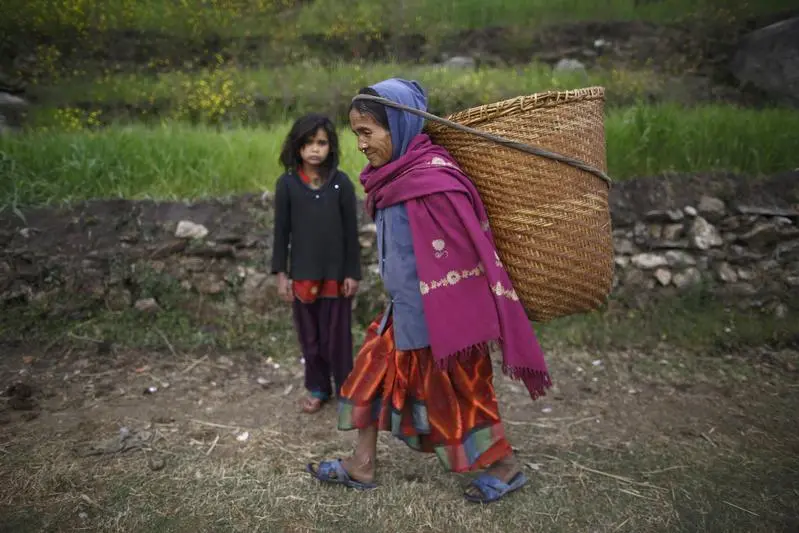PHOTO
Saturday, Dec 03, 2016
Abu Dhabi: Around 50 Nepalese female domestic helps have reached the UAE after Nepal recently lifted a two-year-long ban on their emigration, and recruitment of 1,210 women is under the process, Nepalese diplomats told Gulf News.
“Since the Nepalese Government announced lifting of the ban in May this year, ours was the first embassy in the Gulf to put a new mechanism in place on August 23 under the new regulations,” said Netra Tandan, Charge d’affaires at the Nepalese Embassy in Abu Dhabi.
“We selected 10 local recruitment companies, which are the sole authorised agents to recruit Nepalese female domestic helps to the UAE. Under the new Nepalese regulations, they will be held accountable for any complaints from the women,” he said in an interview at the embassy.
As Gulf News reported earlier, Nepal had temporarily stopped sending housemaids abroad on April 17, 2014 to review their issues and formulate new regulations to ensure their safety and welfare. Nepal had restricted the emigration of housemaids, especially to the Middle East, for more than a decade except for a brief interval during 2011-2014. The government lifted the ban now because Nepalese women were trafficked for domestic helps’ jobs abroad through neighbouring countries, the diplomat said.
Tandan said the prospective employers have to approach any of the ten authorised agencies whose details are available on the embassy’s website (http://www.nepalembassyuae.org/en/).
Nepal has set Dh1,100 ($300) as the new minimum wage, which was Dh900 until the ban was issued in 2014. They should attain the minimum age of 24 to work abroad.
He said there is huge demand for housemaids in the UAE because of their shortage in the market. As Gulf News reported, Philippines and Indonesia had stopped sending housemaids to the UAE since 2014 and 2015 respectively and the number of Indian housemaids coming here tapered off due to stringent Indian rules .
A mandatory one-month-long training and one-week’s orientation course in Nepal for housemaids going abroad are the major highlights of the new system. “They are taught 50 essential Arabic words and operation of electric and electronic gadgets. Nannies are given behavioural training and cooks get cooking classes,” the official said.
“This will definitely reduce complaints from housemaids as they will able to perform well in their work.”
Krishna Aryal, second secretary and information officer at the embassy, said around 250 Nepalese housemaids who ran away from their sponsors approached the embassy for help during the past two years. “They reached here illegally and they were deported with the help of the UAE authorities. We receive around 10 such complaints a month about unpaid salaries, overwork, physical harassment etc.”
Even many of them did not know in which emirate they were working, let alone the sponsor’s address. After identifying such details, the embassy contacts the local immigration authorities to cancel their visas and deport them.
He said complaints were minimal from housemaids who had come here legally.
At the moment, seven women are in the embassy’s shelter, who will be deported soon.
Box
Labours permit must
Around 3,000 Nepalese female domestic helps who are legally working in the UAE are not immediately affected by the new regulations on recruitment implemented by Nepal, a senior Nepalese diplomat told Gulf News.
“They can continue working under the current sponsors and renew their visas. But if they go back home on vacation, they have to come back to the UAE through an authorised recruitment agent,” said Netra Tandan, Charge d’affaires at the Nepalese Embassy in Abu Dhabi.
While going on vacation, they have to attest their documents at the embassy and renew their labour permit from the Department of Foreign Employment in Nepal. If they reached the UAE without the labour permit to work as domestic help, the embassy would not attest their documents. They have to take fresh permission from Nepal to come back again under the new system, he said.
Therefore, the embassy requested all sponsors to check whether the domestic help’s passport carries the labour permit sticker. Those who do not have the labour permit have come here illegally and are considered victims of human trafficking by the Nepalese government. They have to be sent back to get the fresh permit to legalise their status, Tandan said.
Most of the sponsors are Indian expatriates, Emiratis, GCC nationals and Western expatriates, he said.
By Binsal Abdul Kader Senior Reporter
Gulf News 2016. All rights reserved.





















